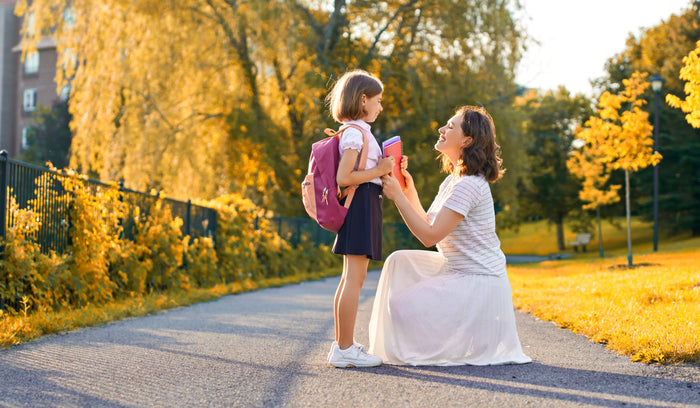How Does Childhood Trauma Affect Adulthood?

For better or worse, every adult lived through their childhood. More often than not, the quality of one's childhood impacts one's adult life in terms of relationships, mental health, and how one sees the world. Each parent is responsible for doing right by their children by providing them with opportunities and otherwise setting them up for success. While good parenting, stable environments, and positive exposure can help a child to be happy and successful later in life, bad parenting, dangerous environments, and negative exposure can cause serious problems in adulthood.
There are many ways to inflict childhood trauma, but it's generally caused by physical/sexual abuse, neglect, or other forms of mistreatment. Trauma can be inflicted by parents, siblings, or individuals in positions of power and authority, and it can leave physiological, psychological, and emotional scars long after the abuse has subsided.
Depending on the longevity and the extent of the trauma, some people can overcome it, living successful and fulfilling lives. This article will cover common effects of childhood trauma, as well as coping tool to move forward to a healthy, adult life.
According to Psychology Today, one of the most devastating impacts of childhood trauma is the effect it has on self-image. Adults who experienced significant trauma as children are more likely to develop a pattern of victimhood thinking. As the name suggests, this state of mind is the belief that one is a victim. Adopting this ideology is incredibly dangerous, as the way people perceive themselves impacts their words, choices, careers, opportunities, and relationships. Individuals who genuinely think the world is out to get them will inevitably attract situations and people who reinforce these beliefs, regardless of how incorrect they may be.
Victimhood thinking is not the only way childhood trauma changes adult behavior. People who were mistreated as children may also become passive and subservient. This usually manifests as the inability to self-express or self-defend and the tendency to bottle up emotions. While some people view passivity as being agreeable or being a team player, burying feelings beneath the surface and not speaking up can have devastating impacts. Moreover, subservience often attracts parasitic individuals who exploit and take advantage of others.
While passivity and subservience are dangerous for everyone, these traits are particularly hazardous for women. If they adopt the behaviors above, women who struggle with unresolved childhood trauma are likely to attract abusive partners or spouses. Abusive relationships, domestic violence, and toxic significant others are nothing to joke about. People have died because they couldn't avoid or escape these dangers.
Like self-image, adult relationships are frequently another casualty of childhood trauma. Psychology Today affirms that people who experienced considerable trauma during childhood tend to attract toxic relationships or even avoid relationships altogether.
This is why people with high self-esteem, confidence, and positive self-image tend to attract beneficial relationships and opportunities. Likewise, someone who lacks these traits generally attracts negative and parasitic people as well as the circumstances that follow.
Left unchecked and unresolved, childhood trauma impacts both personal beliefs and personal relationships. Someone who was abused, neglected, or mistreated as a child may genuinely view themselves as undeserving of loving, supportive, and healthy relationships. Moreover, they may view themselves as unworthy of accomplishments, thus leading to a lack of drive and ambition. In other words, childhood trauma survivors can feel alone, unlovable, and directionless in adulthood.
According to reports from Psychological Science, adults who were exposed to childhood trauma are considerably more vulnerable to depression. Unfortunately, depression is not always taken seriously, but it's a very real mental health issue with a litany of troubling symptoms. Contrary to certain misconceptions, individuals who suffer from depression cannot simply "get over it" or "snap out of it." Ordering a depressed person to do these things can cause more harm than good.
The Mayo Clinic provides insight into the effects of clinical depression. This adverse state of mind affects the way that afflicted individuals view themselves, others, and the world around them. Depression also has the power to engender emotional and even physical problems.
Here are some of the most common symptoms and indicators of depression:
- Insomnia
- Drained energy
- Hopelessness
- Ongoing sadness
- Anxiety
- Lack of appetite
- Poor concentration
- Suicidal thoughts/actions
In most cases, individuals with the abovementioned symptoms tend to isolate themselves while neglecting self-care, slacking off work, and alienating others. Attempts to connect with a depressed person may fail, which can be frustrating and hurtful to friends and relatives who genuinely want the best for the individual in question.
Reading about the effects of childhood trauma can be quite unnerving. However, people who have experienced difficulties as children should not become discouraged or lose hope. No matter what happened in the past, the sun always rises again. There is always room for self-improvement, growth, and recovery. Individuals who went through tough times as children can have positive self-images and healthy relationships while living happy, successful lives.
Although self-care may seem somewhat trivial when you're overcoming childhood trauma, it matters more than you might think. Jordan Grey Consulting explains that individuals who survived traumatic childhoods may subconsciously view themselves as unworthy of healthy habits and lifestyle choices. Therefore, they are more likely to neglect their body, eating habits, etc. This creates a vicious cycle of low self-esteem and eventual self-loathing.
Thankfully, the cycle can be broken with healthy habits, such as exercise, a good night's sleep, and healthy eating. Another important form of self-care involves considering the quality of one's friends, romantic partners, and other relationships. The people around us impact our perceptions, choices, and worldviews. This is why ending unhealthy relationships and cutting off toxic individuals is paramount, especially for people who are working to heal wounds from childhood trauma.
One of the most effective ways to overcome negative memories is by creating positive ones. Pursuing hobbies and extracurricular interests not only allows adults to evolve as individuals, but they also help adults to find a sense of purpose and something to look forward to. It's important for survivors of childhood trauma to know that their past experiences do not have to define the rest of their lives. Everyone has the power to control their fate and quality of life.
In many cases, counselors and therapists can serve as the greatest allies for adults who have undergone childhood trauma. This is largely because trained mental health professionals are equipped to help people work through and heal these difficult issues. However, even with professional help and guidance, you won't overcome childhood trauma overnight. It's going to take time, dedication, and commitment. Moreover, overcoming childhood trauma may require revisiting unpleasant memories. The road to recovery will vary depending on the person, and it can be hard, but it will ultimately be worth it.
Here at BetterHelp, our specialists understand that life presents unique challenges to everyone. No matter who you are or what you've been through, your past does not define you, nor does it have to determine the rest of your life. We can support you in moving past it. Only you can decide to seek professional help. BetterHelp is a convenient option for online therapy should you want support on your healing journey. Below are some counselor reviews, from people experiencing similar issues.
Your past does not necessarily dictate your future. As children, we're often restricted by the rules and limitations set by our parents and other authority figures. As an adult, you have the freedom to set your own path toward a future built by your own personal goals, morals, and ambition. Stay focused on what's ahead, as the past is and always will be a memory.
It's not uncommon to try and make sense of the trauma inflicted throughout your childhood. However, you shouldn't waste too much time or effort on this. There is absolutely nothing that can justify child abuse, so don't strain yourself trying to rationalize it. Instead, try and see it for what it is--a dark chapter in your life that is and was completely out of your control.
Now that you're an adult, you're capable of recognizing toxic and abusive behavior, so you can use your past as a learning experience; you know what not to do with your children. You don't have to follow in the footsteps of those who raised you, nor should you. As weird as it may sound, you can put your dark experience to good use by vowing never to inflict the trauma you endured on others.
Childhood trauma can negatively impact the rest of your life, but it doesn't have to be that way. You can heal. As an adult, you now hold the power to change your life. Take the first step.














































